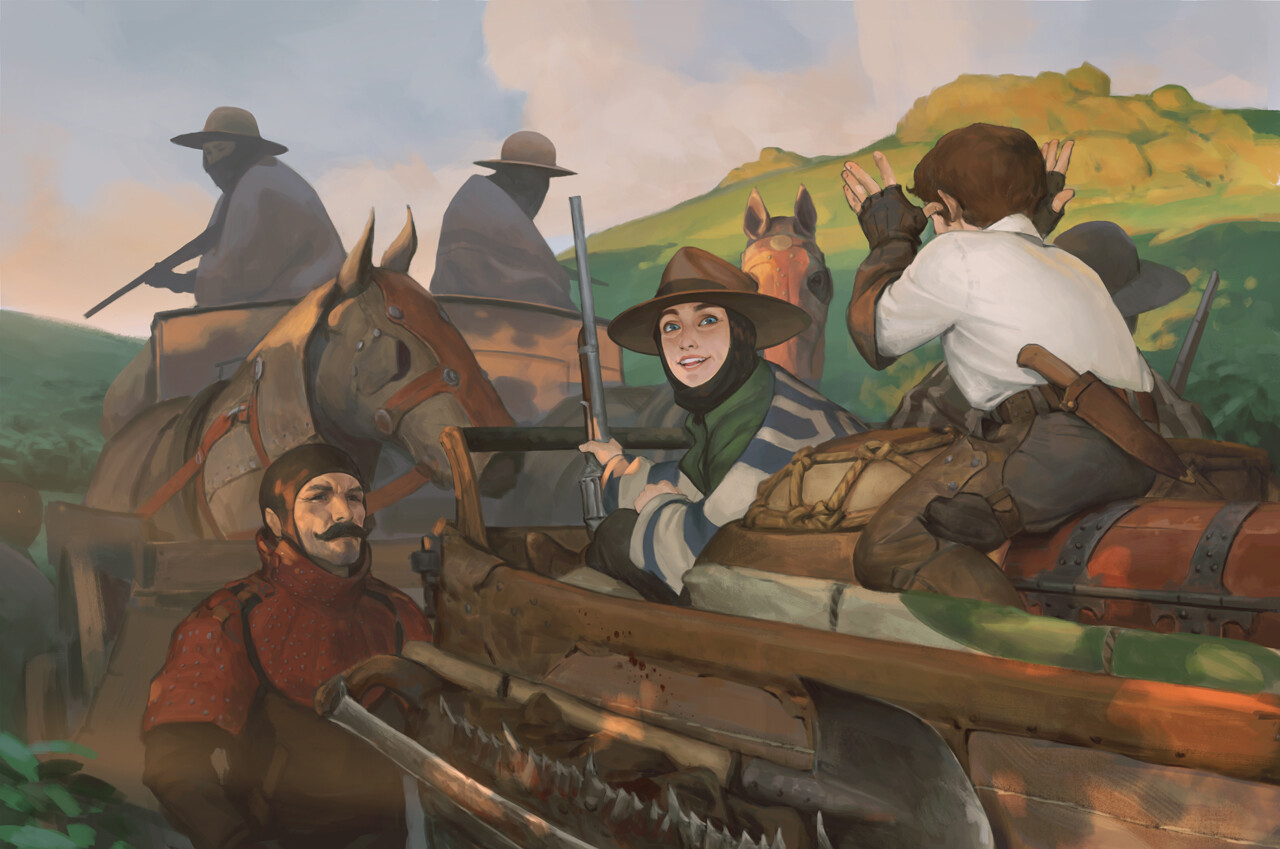I adore Stepan Alekseev's art. That is all.
- Players do not need to roll dice to learn about their circumstances.
- Be helpful and direct with your answers to their questions.
- Respond honestly, describe consistently, and always let them know they can keep asking questions.
Difficulty: Default to context and realism rather than numbers and mechanics.
- If something the players want to do is sincerely impossible, no roll will allow them to do it.
- Is what the player describes and how they leverage the situation sensible? Let it happen.
- Saves cover a great deal of uncertain situations, and are often all that is necessary for risky actions.
Danger: The game world produces real risk of pain and death for the player characters.
- Telegraph serious danger to players when it is present. The more dangerous, the more obvious.
- Put traps in plain sight and let the players take time to figure out a solution.
- Give players opportunities to solve problems and interact with the world.
Choice and Impact: Give players a solid choice to force outcomes when the situation lulls.
- Use binary “so, A or B?” responses when their intentions are vague.
- Work together with this conversational progress to keep the game moving.
- Ensure that their actions leave their mark on the game world.
Preparation: The game world is organic, malleable, and random. It intuits and makes sharps turns.
- Leverage random tables and generators to develop situations rather than stories or plots.
- Non-players remember what players say and do to them and the world around them.
- No one wants to die for no reason. Infuse survivability and self-interest into every personality.
Diegesis: Emergent experience of play is what matters, not math, character abilities, or meta elements.
- Give the players sword trainers and personal quests to facilitate their improvement and specialization.
- Pay attention to the needs and wants of the players, then put realistic opportunities in their path.
- A dagger to your throat will kill you, regardless of your expensive armor and impressive training.

Great advice! These are all good points that are easy to forget.
ReplyDeleteI digs it. Now do it in three bullet points each. :P
ReplyDeleteI'll get there someday...
Delete"Information" really tugs some nice heartstrings for me. I think it's one of the defining philosophies over with the GUMSHOE folks.
ReplyDeleteHow do you decide how much detail to show them if they are in a room but don't search it?
ReplyDeleteTell whem what's obviously observable, ensuring you note what obvious spots might hide more information (but don't make it leading). It's on the players to do the work.
Delete